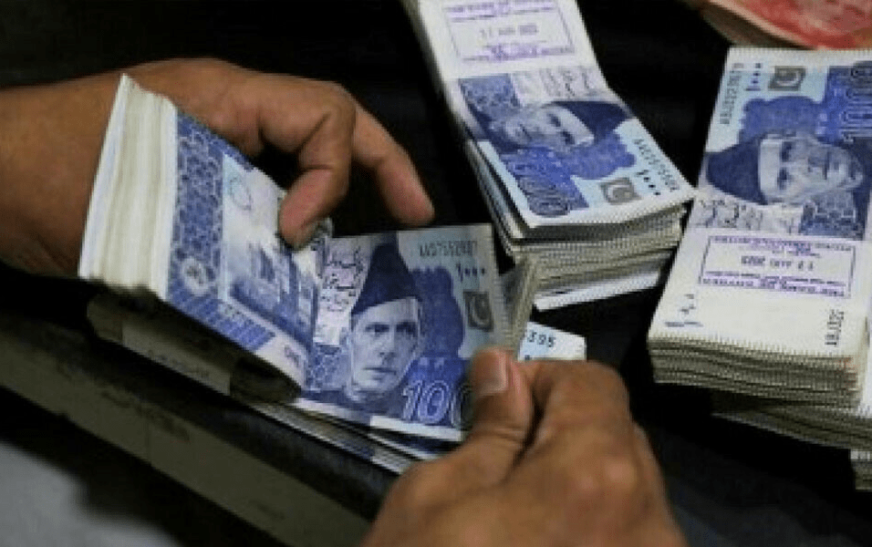ISLAMABAD: The State Bank of Pakistan (SBP) has been reviewing to replace all currency notes, including launching polymer currency of any one note.
The design of new currency notes will be presented before the federal cabinet by the end of the current calendar year and there is the possibility that all existing currency notes will be replaced in the next calendar year.
It is also the fact that the SBP was not considering abandoning the Rs5,000 note despite in a recent deliberation the Parliamentarians raised this issue and came up with an assertion that it was being used for “corrupt practices” in the country.
The SBP, like many other central banks around the world, is evaluating the potential of Central Bank Digital Currency (CBDC). The SBP wanted an informed decision about the feasibility and benefits of the CBDC for keeping the country abreast of digital financial inclusion at par with other countries.
Pakistan’s central bank has been engaged with the World Bank and IMF for the exploration of CBDC and its benefits for the monetary payments system of Pakistan. For this, SBP held several sessions with World Bank and IMF experts in various areas of monetary policy, currency issuance, financial stability, payments digitization, cyber security, and technological infrastructure. Based on these sessions, it has so far been concluded that:
Pakistan has an enabling digital infrastructure available which can be leveraged. Quick-wins available to enhance digital payments such as Raast need to be implemented at a faster pace.
Read more: Bank deposit protection limit increased under new bill
A more detailed analysis of CBDC is necessary to identify the use cases such as domestic or cross-border payments, explore macro-financial risks and evaluate the legal framework and IT preparedness.
The SBP is also working at a technical level of CBDC and has initiated a proof of concept (POC) with the World Bank’s technical team on domestic use cases. In this POC, the SBP team is experimenting with various simulation models in the World Bank’s technical lab on the back-end technology such as blockchain and smart contracts for issuing or minting CBDC.
Plastic Currency (Cards): Payment card (aka plastic currency) is a critical payment instrument offering services such as cash withdrawals, funds transfers, bill payments, in-store payments and online e-commerce transactions, facilitating digital payments both domestically and internationally.
Payment cards come in different forms like debit, prepaid, and credit cards. These are offered by international payment schemes (IPS) such as MasterCard, Visa, and UnionPay as well as Pakistan’s own domestic scheme “PayPak”. Each provides unique benefits, allowing consumers to select cards that best meet their financial requirements for everyday use, travel, or online shopping.
In Pakistan, the total number of cards issued stood at 51 million as of June 2024. Of these cards, 89 per cent are debit cards, 4 per cent are credit cards and the remaining 7 per cent are social welfare and pre-paid cards. During FY24, cardholders performed 932 million transactions at ATMs across the country (15 per cent annual growth), 257 million transactions at POS-enabled merchants (36 per cent annual growth), and 34 million at online e-commerce stores registered with banks (27 per cent annual growth).
The number of E-commerce merchants facilitating card-based purchases has increased to 7,816 in FY24 compared to 6,889 in FY23, an annual growth of 13 per cent.
The SBP’s prime focus is on promoting domestic cards i.e. PayPak. In collaboration with 1Link, SBP launched the PayPak scheme in 2017, offering a low-cost card solution for underprivileged segments. Today, PayPak holds 25 per cent of the total number of debit cards.
Under SBP’s direction, 1Link (owner of the PayPak scheme) is actively working to expand its card usage by customers through improved branding, and its enablement of e-commerce & international transactions., For this, 1 Link has partnered with IPS including MasterCard and UnionPay.
To minimise forex outflow in the form of commission paid to international payment schemes (Master/Visa/UnionPay) and develop indigenous payment solutions, SBP in collaboration with industry is working on developing a local routing mechanism (processing for settlement) for the domestic transactions on PoS terminals.
SBP has made continuous follow-ups with the industry to reduce the merchant discount rate – MDR (that the banks charge to the merchants on PoS-based transactions) on card payments. As a result, the MDR has reduced to around 1.4 per cent from 2.5 per cent in a couple of years, creating an incentive for merchants.
Currently, some POS terminals are around 130,000 in FY24 which has increased from 47,000 in 2020 due to consistent push by SBP. The PoS is an expensive solution due to being an imported product and associated tax/duties and hence is normally deployed with high-end merchants. To counter this, SBP is working on a strategy to deploy Raast QR Code (a low-cost solution) on the locations of merchants/retailers especially small shops and vendors across the country.
To improve the security of card-based payments, SBP has mandated the banks to provide minimum two-factor authentication for the customers using their cards for e-commerce transactions, besides also instructing the banks for the issuance of only EMV Chip & PIN cards which has eliminated the risk of cards’ skimming frauds (in which hackers steal the customers data for fraud purpose).














